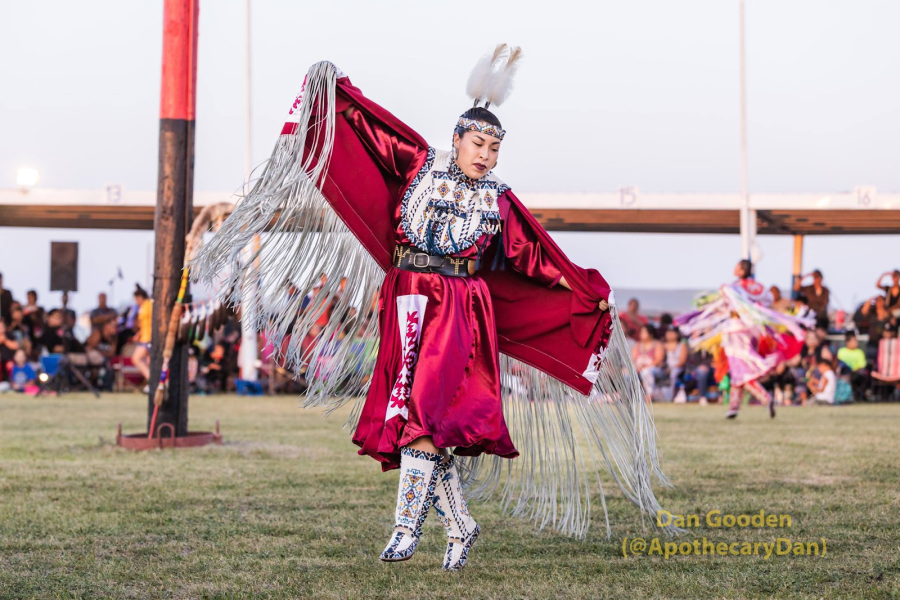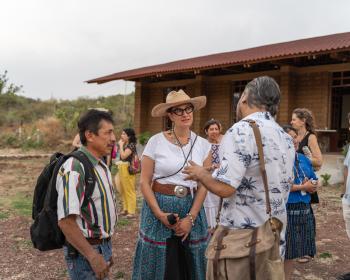I have come to the point of despair. Having been born a Native, raised in my village, and lived my life in Alaska, I can say with conviction that there has not been a worse moment in Alaska's recent history for Alaska's Native peoples than now. In spite of all of the gains Natives have made for themselves in virtually every area of private and public endeavor, the result is a society in Alaska that only dimly comprehends their existence and seems more and more unwilling to accept, let alone celebrate, the Native place in Alaska. Blame can be assigned widely, including to Natives themselves; we have seen much of that, but the reality is this -- Alaska's Native peoples are coming more and more to believe that the right course for their future is to disassociate from the rest of Alaska. If not physically with a northern territory then within themselves by moving away from building the kind of societal relationships they envisioned, for example, at the time of statehood, that would result from their full participation and endeavor. What has always kept me enthusiastic and positive about Alaska has been the belief that the majority of Alaskans are good and decent people who recognize the value of the first inhabitants of this land being full partners in the state's future. I am beginning to question that belief, for that voice, if truly it is there, is not being heard. What is being heard and seen by Native people is a cacophony of negatives and meanness emanating largely from the legislature, but echoed in many places. While Anchorage celebrates itself as a City of Lights the ability to keep the kitchen light on in rural villages is being threatened. While more and better schools and schooling are needed, rural education funding is being reduced. While management of subsistence uses of fish and game becomes a stalemate even to the point of federal takeover there is an inexorable assault on the lands and resources subsistence users require by growing numbers of sport users. These and many more matters of public policy affecting rural and Native Alaska are being debated ad nauseum. I mention them only to make the point that ultimately their resolution even by full funding or action is not now the central issue. What is the issue is the sour and vile residue of the debate itself that has opened the eyes of Native Alaskans to what may portend their place in Alaska's future if current trends prevail. I believe that the majority of Native leaders are looking with alarm at what is happening because they, like me, have always worked hard to be good and contributing Alaskans and now we see that there are those who seem to have a very different view of Alaska's future. It is a future that does not seem to include us in a meaningful way, that allows public policy and programs to be developed without our real participation and to move in directions that marginalize our existence and is not responsive to our circumstances. The signals in this regard, in the absence of a countervailing view being expressed by Alaska public policy leaders and citizens, are very ominous to Alaska's Native peoples. I cannot accept that the alleged fiscal crisis is causing a short term aberration for it is fiscal policy that establishes long term public policy and now is the time to establish the place and priority of Alaskans and what is being done frightens and angers Native peoples. I cannot accept that the merger of British Petroleum and Arco can be a priority that compels the creation of a high level task force and the hiring of the best legal minds in America and the spending of suddenly available hundreds of thousands of dollars when rural issues and the future of rural Alaska is seemingly accorded no priority at all by the State of Alaska as evidenced by a Rural Governance Commission, funding for which the legislature summarily rejected. Most important, though, is the overwhelming sense that I get of ignorance among non-Native Alaskans, after all of these years of living and working together, of the aspirations of Alaska's Native peoples. I don't believe that Native Alaskans can be blamed for wondering whether that ignorance is willful and whether their aspirations are consciously being rejected. There are rays of light in the public policy firmament but they seem dim in the glare of what Native peoples feel and see. The leadership of Senator Stevens with the creation of the Denali Commission is certainly one point of light. The upcoming report and recommendations of Governor Knowle's Rural Governance Commission may be a spark. There are many good people doing good and decent things to make life and society better for all of us. The current legislature may ultimately find an appreciation of the reality of rural and Native Alaska and act accordingly. But what has happened during the recent past to drive people apart in this state will not be easy to repair. My fervent hope is that leadership will be asserted to which Alaska's Native peoples can respond with a real sense that progress can be made. It is thinking of the alternative that has me on the brink of despair.
Article copyright Cultural Survival, Inc.



